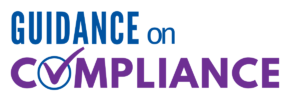In this Minimum Data Set (MDS) Accuracy Blog, we will highlight Sections and items in the MDS to review key misses that the experts at LW Consulting, Inc. (LWCI) have encountered. At LWCI, we thrive in partnering with clients to complete audits or provide consultative services to support concerns. As the experts at LWCI conduct audits, we identify commonalities with coding. Throughout this blog series we will be sharing information on optimal MDS coding, based on the regulations and our findings.
This blog highlights coding in Section K of the MDS. Section K relates to the swallowing and nutritional status of the resident. Auditors at LW Consulting, Inc. (LWCI) complete a variety of audits and some of the most common miscoding is within Section K of the MDS.
What is the Main Intent of Section K?
The intent of Section K Swallowing and Nutritional Status is to assess conditions that affect the resident’s ability to maintain adequate nutrition and hydration. This includes the presence of any swallowing disorders, issues related to the resident’s height and weight including any significant weight changes, as well as required nutritional approaches and diets.
Section K has a significant importance under the Patient Driven Payment Model (PDPM) for Medicare Part A residents. If you are coding one of the swallowing disorders listed on the MDS, there must be corresponding documentation to support the coding. When auditors review documentation, they are combing through nursing notes, physician notes, dietician notes, and the evaluation and notes from the speech language pathologist (SLP). Not thoroughly reviewing the dietary note or the SLP documentation for any swallowing problems is a common root cause of miscoding. There should always be clinical collaboration between the dietician, dietary staff, and the SLP, as well as nursing and physician staff. Even if the symptom occurred one time, if it was during the look-back period, it should be included on the MDS.
What is primary evidence of miscoding with Section K?
When reviewing documentation for accuracy in coding Section K, an auditor is looking for supportive documentation related to the swallowing problems. Per the Resident Assessment Instrument (RAI) Manual, do not code swallowing problems if interventions have been successful in treating the problem. If there is no evidence of an issue, as it did not occur one time during the assessment period, it should not be coded on the MDS.
The MDS Section K0100 includes the following criteria for coding a swallowing disorder:
A: Loss of liquids or solids from mouth when eating or drinking
B: Holding food in mouth or cheeks or residual food in mouth after meals
C: Coughing or choking during meals or when swallowing medications
D: Complaints of difficulty or pain with swallowing
If there is evidence in the medical record during the lookback period related to any of these signs and symptoms listed in K0100, the MDS should be coded. However, the documentation must support the coding. A SLP may indicate “pocketing” of food during the SLP’s evaluation on the ARD or seven days prior. If this is the case, it can be coded as appropriate in Section K. If the documentation fails to support issues with swallowing for this particular item, the coding will affect the SLP Case-Mix Group.
According to the RAI Manual, Parenteral or IV feeding can include the following when there is supporting documentation that reflects the need for additional fluid intake specifically for nutrition or hydration:
– IV fluids or hyperalimentation, including total parenteral nutrition referred to as “T-P-N”, either administered continuously or intermittently
– IV fluids running at Keep Vein Open or “K-V-O”
– IV fluids contained in IV Piggybacks
– Hypodermoclysis and subcutaneous ports in hydration therapy
Auditors highlight other common issues including items that should not be coded in Section K.
What is NOT coded in Section K, specifically item K0510A are the following items:
– IV medications that belong in Section O0100H for IV medications.
– IV fluids administered as a routine part of an operative or diagnostic procedure or recovery room stay
– IV fluids administered solely as flushes
– Parenteral or IV fluids administered in conjunction with chemotherapy or dialysis
Enteral feeding should not be coded as a mechanically altered diet. Enteral feeding should be coded as a therapeutic diet only if used to manage problematic health conditions (for example, enteral formulas for diabetics). Common mishaps highlighted among auditors is the lack of supporting documentation involving a mechanically altered diet.
Auditors look for the following information regarding the proper support of coding mechanically altered diet:
– Documentation that supports modifications in texture of food or liquids
– The change in texture must be related to swallowing
– If the need is due to a fractured limb with residual effects limiting the resident’s ability to cut food, this cannot be counted
– The coding must be supported by a physician’s order for a mechanically altered diet
– If there is an order, but no documentation indicating that a mechanically altered diet was provided, this cannot be coded
The highlighted scenarios are some of the prevalent issues LWCI has encountered through auditing, but there are others that have been identified. The information gathered from auditing provides clients with valuable knowledge to identify the main root causes of inaccuracies for their facilities. Facilities are still having issues with Section K regarding the provision of supportive documentation.
How Can LW Consulting, Inc. Help?
LWCI can review an audit sample to identify areas where you may be at risk. Our consultants are well versed in reviewing the data, identifying the trends, and examining the documentation to highlight such risk areas. Our Pre-Bill audit reviews allow for capture of miscoding prior to closing the MDS. Our turn-around time is quick to meet facility needs.

